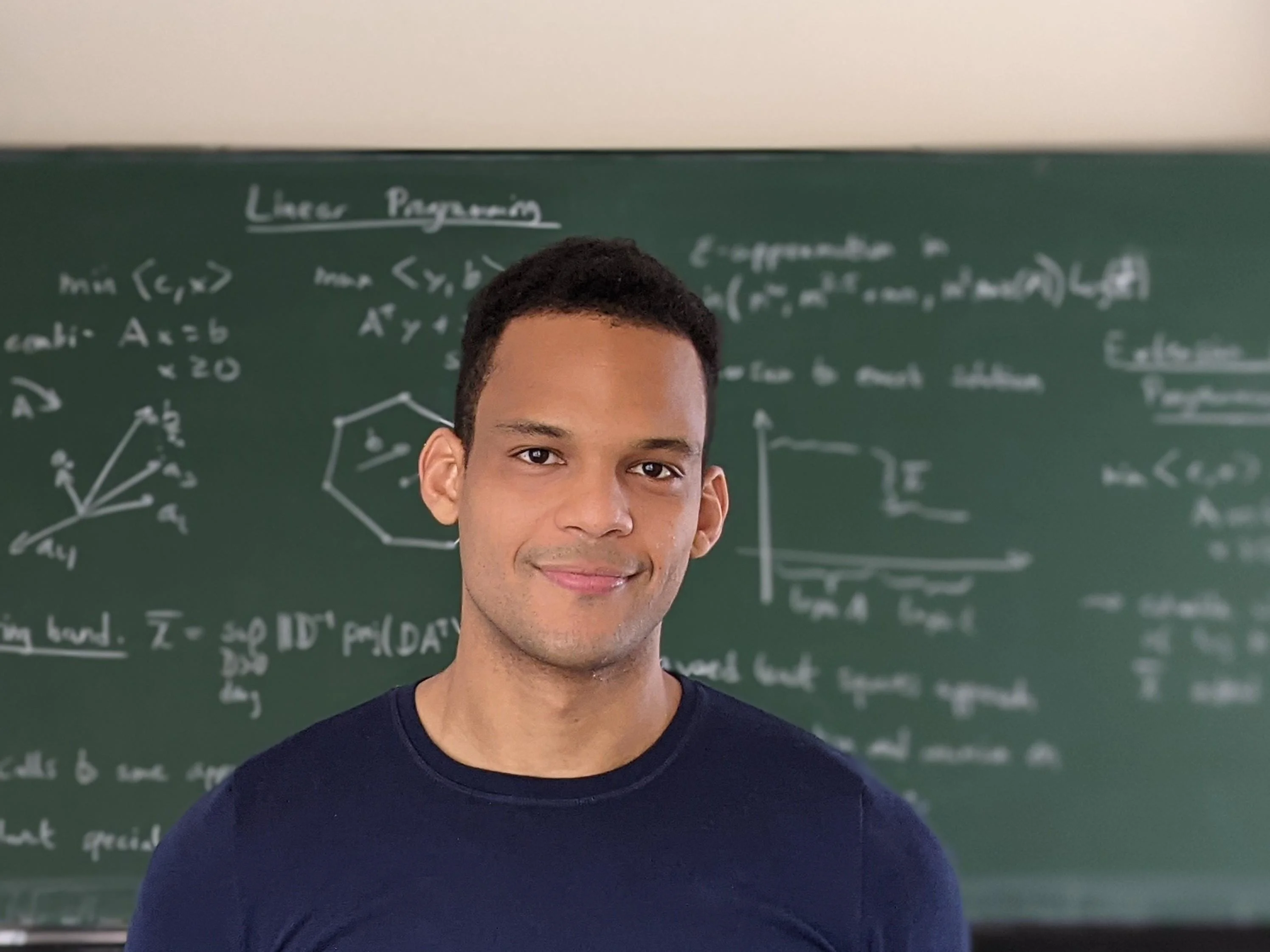The Theory of optimisation: a Q&A with Bento Natura
The Theory of optimisation
Bento Natura is a PhD candidate in the Department of Mathematics
If most practical problems solved using Linear Programming could be sped up by a few percent, this would be an incredibly significant achievement.

What are you currently researching?
I am working on the Theory of Optimisation, more specifically on Linear Programs. These are a fundamental tool in optimisation and have many applications in areas as diverse as engineering, portfolio optimisation, game theory or chip design.
My research focuses on solving these programs. We’ve had algorithms for several decades which, on modern hardware, can approximately solve instances with millions of variables very efficiently in practice, but in theory it is a major open problem whether these programs can also always be solved exactly efficiently.
My central research focus is to devise algorithms which can solve even the "worst case" Linear Programs faster by getting a better understanding of the underlying geometry of these problems.
Why did you choose this area of study?
Throughout my life, I have been interested in science and was competing successfully in nationwide competitions in Germany during high school. During my Mathematics and Physics undergraduate in Bonn, I had a lecture on Discrete Mathematics which fascinated me. The combination of mathematical rigour with real world applications and programming/implementation caught my interest immediately.
How will your research improve or have a wider impact on society?
My research has a strong impact, albeit not directly. As mentioned, we aim to understand why an important class of programs can be solved efficiently in practice, because the theory does not yet have an answer for that.
Furthering our understanding here would give insights on how to modify these practical algorithms to make them even more efficient. If most practical problems solved using Linear Programming could be sped up by a few percent, this would be an incredibly significant achievement.
What have been the highlights of your research work so far?
The highlight is usually when you solve an open problem or find an algorithm that improves the state-of-the-art runtime. The feeling of joy is unique and addictive, but you must work hard to even hope to achieve it. Also, you must be hesitant, as often a few days later you find a flaw in the argument. There are similar highs, such as: finishing a draft of a paper; or when the paper gets accepted at a conference.
What has been your biggest challenge so far?
For some problems, you have the feeling that the solution is just around the corner. You think a few more days and the problem will give in. For some of these problems, me and my collaborators still have not made any progress.
In these moments it is hard to not revaluate the decision to go for a PhD, while your friends from university have safe and steady jobs, many of which are not less fun than academia but mostly without the downs. At this point, I should say that you should only go for a PhD in Mathematics if you are 100% certain that this is the right choice for you.
What advice would you give to prospective students on the most effective way to approach research and keep stress levels down?
There are no general solutions. Everybody is different: joining a PhD program with a different background; having different learning and productivity habits; and having different luck in the initial months and years.
I would say that it is better to have stress that is self-imposed, and not imposed on you by your supervisor or peers. When you notice the self-imposed stress, make sure you don’t let your pride get in the way and try and figure out a problem on your own if you have been banging your head on the wall for months. It is ok to ask your supervisor and peers to work on a problem with you or to get them excited about your problem, so they eagerly join the endeavour.
In a few words, what is the best thing about studying at LSE?
The location is second to none. Also, compared to other universities the Professional Service Staff take a lot of work off faculty and PhD students' shoulders, allowing them to focus on research.